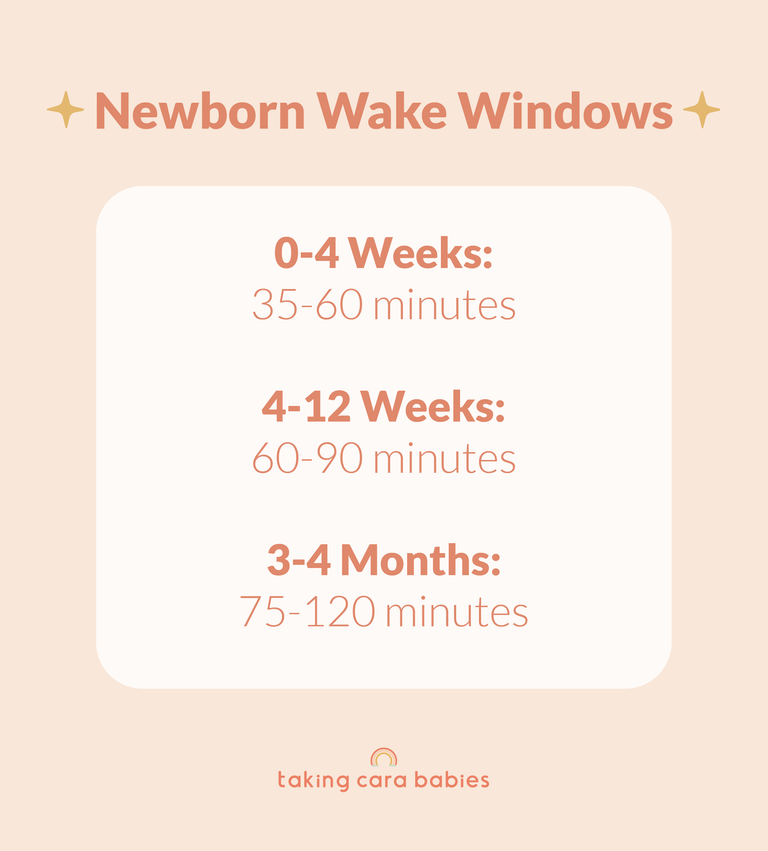Do you have a newborn who likes to sleep all day and be up all night? You’re not alone. Day-night confusion is so common in newborns.
Let's talk about why day-night confusion happens, what it looks like when newborn days and nights are mixed up, and tips to help.
What is day-night confusion?
Day-night confusion is a time when newborns are adjusting to life outside the womb. Their sleep-wake cycles are reversed causing them to sleep lots during the day and be awake more in the evenings and nighttime. Day-night confusion is common in the early weeks, but there are practical steps you can take to help turn those days and night around.
When does day-night confusion start?
Day-night confusion can happen as soon as babies are born, in the first few weeks of life, or it may never occur at all.
Why do newborns experience day-night confusion?
As adults, we have an internal clock known as the circadian rhythm. That circadian rhythm is regulated by our hormones, including the sleepy hormone, melatonin. It's also driven by the light and darkness outside and the schedule you typically follow. Do you find yourself waking up on the weekend at the same time your alarm normally goes off during the week? This is your circadian rhythm in action.
Your newborn doesn’t have this rhythm quite yet(2). They are still developing that internal clock that tells them it’s time to sleep, and those sleepy hormones aren’t regulated until closer to 3-4 months(1). This is why we see babies who sleep all day and are up all night.
How do you fix your newborn being up all night?
1. Start your day no later than 8:00 a.m.
I know this will feel so hard if you've been up for hours in the night. I get it! Starting your day early is the last thing you want to do, especially when your baby is finally sleeping. But, your goal is to break this cycle and start turning those days and nights around. Your baby relies on you for external cues about the difference between day and night. Starting your day by 8:00 am is the first step. This allows for your baby to have a full day before bedtime.
2. Offer full feedings during the day.
Often, when days and nights are flipped, babies are snacking instead of consuming full feedings. Maybe you’ve seen this? Your baby wakes up for a short time, eats, drifts back to sleep, and continues this cycle all day and all night. They eat just enough to take the edge off their hunger. One way to help encourage turning days and nights around is to discourage snacking and really aim for full feedings.
3. Be intentional with your wake windows during the day.
Understanding wake windows and sleepy cues can help you get that much-needed awake time for your baby without making them overtired.
Your newborn’s wake windows will be short at first. Here are common wake windows by age for those first few months.
It may feel like feeding takes up that whole wake window at first, but try to incorporate at least a few minutes of newborn play. This active awake time cues your newborn that daytime is for playing and interaction.
Expert Tip: A tracking app can be so helpful with day-night confusion and watching wake windows. I love Baby Tracker by Nara. It allows you to set your wake windows, get reminders, and share between multiple caregivers.
4. Use light and darkness to your advantage.
Light and darkness are the perfect visual cues for your newborn that day is for playing and night is for sleeping. Using natural daylight as well as lights around your home stimulates your baby’s brain(3).
-
Use daylight during the day to help your baby stay awake. Open your curtains, switch on your lamps. Help your newborn understand that light means it’s time to be up, play, and interact. If the weather is nice, go outside for some air and sunshine.
-
You don’t need to have a light, bright room for naps. We still want a dark environment for naps so your baby can rest.
-
As you get your newborn ready for bed at night, dim the lights around your home. Dimming the lights around the house and making it darker is a great external cue that it's time to get into our jammies and go to sleep. One way to do this is to start a bedtime routine.
-
Try to maintain the lowest light possible – that is safe for you and your baby – during night feedings and diaper changes. A great low light alternative is a red light bulb, which is not nearly as stimulating to the brain. You can simply swap out a regular light bulb for a red one or get a nightlight where you can choose the color.
5. Keep your baby awake during feedings.
It's so important that your baby is awake during feedings. If they’re dozing at the breast or bottle, this really can impact day-night confusion. If your little one is falling asleep during feedings, get in a bright room and get them undressed (down to just a diaper). If you notice that they are dozing during a feeding, try lifting up under their chin, pumping their arm up and down, and rubbing their head. Watch for those big, long draws. It won't be easy, but doing your best to make feeding an intentional awake time activity really can help turn those days and nights around. Try to have a distinct line between eating and sleeping.
6. Take my newborn class.
In my newborn class, I’ll give you the tools you need to conquer day-night confusion, read your baby's sleepy cues, set a flexible sleep schedule, calm a fussy baby, and – best of all – LOVE the newborn stage.
If my baby has Day-Night Confusion, should I keep the room bright for naps?
No, you don't need to keep the room bright for naps if your little one has their days and nights confused. Here is what I need you to know: If your baby is struggling with day-night confusion, napping in a well-lit room isn't the answer. Exposure to light during awake time is what helps your baby to learn days from nights.
Remember that light stimulates the brain and darkness cues it's time for sleep. You can absolutely turn the lights off during nap time. Now, if you're out and about or baby falls asleep in the living room, it's fine that the lights are on.
How long does newborn day-night confusion last?
Every baby is different. Some newborns adjust in just a few days, and others take a little longer. Implementing these tips will help you move in the right direction as quickly as possible. I know that newborn day-night confusion can feel tough, but don’t forget that there is no better parent on the planet for that baby than you.









